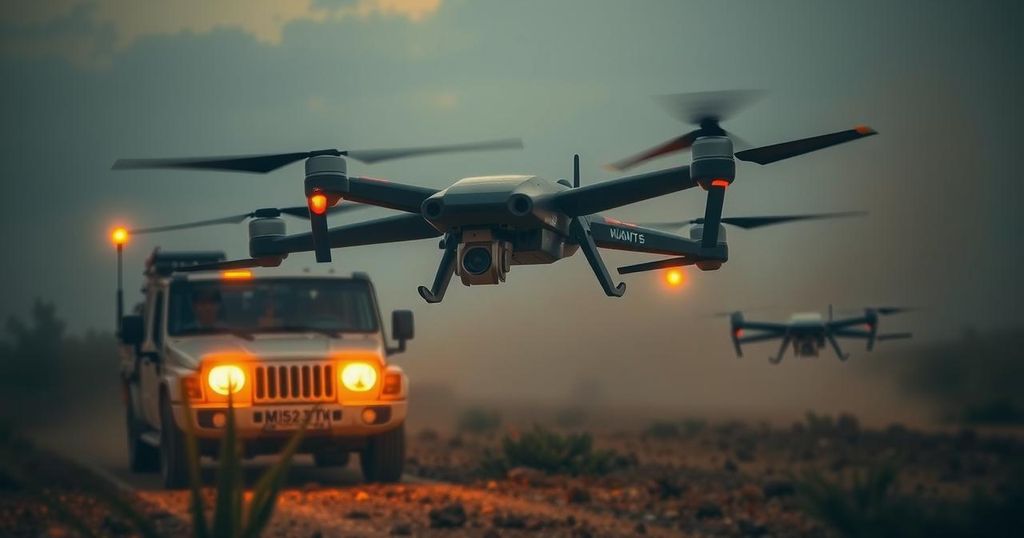On December 1, 2024, Sudan’s Joint Force seized drones and destroyed an RSF convoy from Chad, marking a significant military response against the Rapid Support Forces amid ongoing conflicts. The operation resulted in substantial RSF losses and highlighted potential foreign support for the RSF’s activities, particularly from the UAE.
On December 1, 2024, in El Fasher, Sudan, a joint force comprised of the Sudanese army and associated factions successfully intercepted and destroyed a convoy belonging to the Rapid Support Forces (RSF), which originated from Chad. This operation, executed near Nyala in South Darfur, marks the second assault on RSF logistics within a two-week span, aiming to disrupt their supply routes in the tri-border region encompassing Chad and Libya. During the action, the joint force captured three large and six smaller drones, which were reportedly modified for military usage, alongside destroying several military vehicles and inflicting fatalities on over 30 RSF fighters. Furthermore, the seized drones, identified as Danger Propellers models obtained from the Czech Republic, were allegedly financed and smuggled into Sudan with the involvement of the United Arab Emirates (UAE).
The conflict in Sudan involving the Rapid Support Forces (RSF) and the Sudanese army is rooted in complex political and military dynamics, particularly following the signing of the 2020 Juba Peace Agreement. Since May, the army has engaged in significant confrontations with the RSF, especially in El Fasher. The recent joint operations reflect an increased strategic focus on disrupting RSF supply lines and operations, a necessity underscored by purported foreign support for the RSF efforts. The UAE’s alleged involvement has intensified scrutiny over international influences in Sudan’s ongoing instability.
In summary, the recent operations conducted by Sudan’s Joint Force underscore a deliberate strategy to incapacitate RSF capabilities by targeting their supply routes and military assets. The seizure of drones and destruction of combat vehicles highlight escalating military efforts against RSF activities while also revealing potential international complicity in the ongoing conflict. The joint force’s actions reflect a significant step in asserting control over contested regions, although the broader implications of foreign involvement, particularly by the UAE, remain critical in understanding the conflict’s complexity.
Original Source: sudantribune.com






